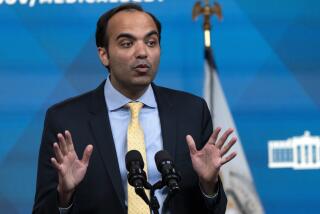Early withdrawals from CDs get more expensive at Bank of America
It seems like every time you turn around, banks find a new way to stick it to you.
The latest example comes from Bank of America, which has significantly toughened the penalty for early withdrawals from a certificate of deposit.
In the past, BofA would charge 90 days worth of interest for early withdrawals from a CD good for 12 months or less. In other words, a $10,000, 12-month CD with an annual yield of 0.3% would entail an early withdrawal penalty of about $7 if you took out the entire amount.
Now BofA is charging a flat $25 plus 1% of the amount withdrawn for CDs with terms under 12 months and 3% for longer terms.
That means the early withdrawal penalty for that same $10,000, 12-month CD now runs $125 — a nearly 1,700% increase. The penalty for a five-year, $10,000 CD is $325 — a roughly 1,600% increase.
Gregg McNelly discovered this the other day when he went to a BofA branch to ask about the consequences of withdrawing a $10,000 CD to help cope with some medical expenses. The teller explained the new penalties, which took effect in February.
“My jaw dropped when I heard how much it would cost,” said McNelly, 54, of Westchester. “I couldn’t believe it. I wouldn’t just be losing interest. I’d be losing principal.”
The bank’s new-and-not-so-improved CD policy is part of an ongoing trend throughout the banking industry to milk profit from additional sources amid a crackdown on what lawmakers say were unfair credit-card and checking-account practices.
Banks are scrambling to make up for lost revenue they could once count on from high interest rates, late fees and overdraft charges. In BofA’s case, the company says its first-quarter revenue from card services plunged 18% from the same period last year.
Don Vecchiarello, a BofA spokesman, said the new early-withdrawal policy for CDs was intended to simplify things for customers. Many people, he said, had trouble calculating a penalty of 90 days worth of interest from an annual percentage yield.
Vecchiarello also said the bank wanted to implement a consistent policy nationwide and, most importantly, to discourage customers from making early withdrawals from their CDs.
“A CD is a contract between a bank and a customer,” he said. “If the contract is broken by an early withdrawal, the bank needs to replace those funds. There’s a cost to that.”
But did BofA lose money with the former penalty?
“I don’t know the answer to that,” Vecchiarello said.
I do. Of course the bank didn’t lose money by charging 90 days’ interest for early withdrawals. If the old policy was a money loser, BofA would have changed it long ago.
Rather, it looks like that 90 days’ interest simply wasn’t enough for BofA. The bank wanted more.
It doesn’t seem like a coincidence that, along with the fatter penalty for early CD withdrawals, BofA has introduced new checking accounts that come with monthly fees and slapped a $59 annual fee on about 2 million credit card accounts.
The bank is now also notifying credit card customers that their interest rate could hit nearly 30% if they miss a single payment.
To be fair, BofA isn’t the only bank playing rough with customers. Most other major banks also have sky-high penalty rates for missed card payments.
Similarly, Chase bank revamped its own early-withdrawal policy for CDs last year, introducing a $25 fee plus 3% of the amount withdrawn.
This week, Chase said it was ending an experiment with $5 fees for people from other banks to withdraw money from Chase ATMs. Such fees typically run $2 or $3. It’s possible the higher fees will return down the road.
Where will it stop? Doubling ATM fees is one thing. A 1,700% increase in the early-withdrawal penalty for CDs seems like a blatant money grab, made all the more insulting by the minuscule amount of interest banks dole out in return for being able to spend and invest your money.
Banks provide a variety of valuable services, and customers should pay a reasonable price for the convenience and reliability they offer.
But the banking industry, through its relentless pursuit of higher fees and charges, has demonstrated that its practices are motivated almost solely by greed — an unwavering instinct to pad its pockets even when lawmakers and regulators are telling them to cool it.
Meanwhile, banks continue to oppose establishment of a Consumer Financial Protection Bureau intended to, yes, protect consumers from banks’ more rapacious practices.
The industry’s latest stab at weakening the agency is a proposal to replace its director (although there isn’t one yet) with a more easily influenced commission.
When McNelly learned about the harsh new penalty for early withdrawals, he left his CD alone and managed to find the money he needed elsewhere. But he’s still smarting.
“I can’t believe they wanted to charge me so much of my own money just to get my own money,” he said.
Believe it. And you can be sure banks will find even more inventive ways of doing so again in the future.
David Lazarus’ column runs Tuesdays and Fridays. He also can be seen daily on KTLA-TV Channel 5. Send your tips or feedback to david.lazarus@latimes.com.
More to Read
Inside the business of entertainment
The Wide Shot brings you news, analysis and insights on everything from streaming wars to production — and what it all means for the future.
You may occasionally receive promotional content from the Los Angeles Times.










